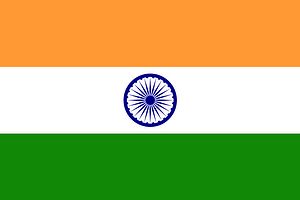A village court consisting of unelected illiterate representatives ordered the mass rape of a 20-year old woman for having a relationship with a man outside her community. Twelve men executed this order. The incident took place in last month in the Birbhum district in the eastern Indian state of West Bengal, around 150 km away from the state capital Kolkata. According to reports, the community rape was ordered because the victim failed to pay a fine of 27,000 rupees as fixed by what the police call a kangaroo court.
The media regularly shame the Taliban and other practicing agents of medievalism, but such damning news has become somewhat characteristic in modern India.
In the Danapur area of Bihar, a father filed suit in court against his son for marrying outside his caste, thereby damaging the reputation and tradition of the community. The father, a lawyer, wants the court to stop his son from using the family surname and to have the son pay compensation of more than $1.6 million for the damage done to centuries of family tradition. Interestingly, the local court accepted his petition and agreed to hear his case.
The news might look funny to some but this mindset is very much a part of changing India.
In Delhi, a young man from the northeastern state of Arunachal Pradesh became the victim of widespread paranoia in mainstream India. According to news reports the, 19-year old was harassed and beaten up by locals over a small matter, reflecting the prevalence of racial prejudice against northeastern Indians. He later succumbed to his injuries. The issue is not how and in what circumstances the young man died after a street brawl; the question is how a small racist comment could lead to such deadly consequences.
People from all the eight northeastern states face racial discrimination. It is true that despite more than six decades of democratic coexistence, the connection between mainstream India and its northeastern states is still missing. Despite a significant presence of northeastern Indians in major cities, understanding remains very limited. As a result, prejudice governs the behavior of the majority.
This prejudice also exists in the academic world, where there is hardly any attempt to teach the history of the northeast. These mainstream attitudes reflect in the larger behavior of the majority against this demographic and cultural minority.
The same prejudice also extends to black Africans who come to India to study and do business. A minister of the local government in Delhi targeted women from Uganda and other African countries, calling them prostitutes, and ordering their arrest. To protect the erring lawmaker, the Chief Minister of the newly formed Aam Aadmi Party protested on the streets. The lack of enlightened leadership further reinforces existing prejudices and inhibits societal growth.
BBC Hindi reports that in the Basti district of Uttar Pradesh, a young boy became a victim of an honor killing – meaning the relatives of the girl killed the boy to protect the honor of the community. Such killing is not unusual in India’s rural hinterlands, where village councils order the deaths of young lovers on grounds that they broke the rules of tradition. There are pockets of India where killing is associated with honor.
This is the ugly underbelly of India and it holds the country back from progress. Unity in diversity – this is the prideful slogan of the country, but the fact of the matter is that geographical integration has failed to create emotional connections across caste, class, and race. The fault lines reflect in the prevailing prejudices in the country.
Economic growth has broken some of the barriers, but has failed to dent the deep-seated prejudices. Violence against women, atrocities against lower caste communities, discrimination against ethnic minorities, and prejudice against religious minorities are ways of life in modern India.
We rail against the Taliban and their ways but we don’t make serious attempts to address our medievalism.
Countries which are called developed are addressed so not because of their economic successes only; they have also liberated their society. They have little gender inequality and little racial discrimination.
The incident in West Bengal reminds us that the task of nation building is not yet over. Entrenched prejudices, backward traditions, and medieval mindsets hold the country back.

































